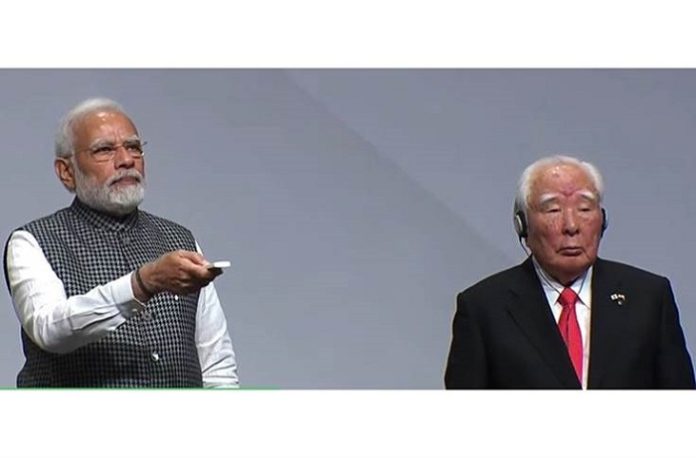Prime Minister Narendra Modi on Sunday said that electric vehicles are bringing a ‘silent revolution’ in the country and will help India cut down on its carbon emissions.
Addressing a program held to mark 40 years of Suzuki Motor Corporation in India at the Mahatma Mandir convention center in Gujarat, the PM virtually laid the foundation stones of the Maruti Suzuki vehicle manufacturing facility for Haryana and Suzuki EV battery plant for Hansalpur in Gujarat.
The PM said the success of Maruti-Suzuki also signified the strong India-Japan partnership. “The success of Maruti is a great example of the strength of the India-Japan relationship. In the last eight years, this relationship between the two countries has reached new heights,” he said.
He also recalled the late former Japanese PM Shinzo Abe and his contribution to India-Japan ties. “Abe worked to bring the two countries closer and the present PM (Fumio) Kishida is working further for it,” said the PM.
“Today, from the bullet train in Gujarat-Maharashtra to the Rudraksha center in Varanasi, many development projects are examples of Indo-Japan friendship. And when it comes to this friendship, every Indian definitely remembers our friend, former PM late Shinzo Abe.”
He expressed hope that in continuation of Abe’s legacy, Kishida will take forward the relationship between the two nations. “When Abe came to Gujarat, the time he spent here is fondly remembered by the people of Gujarat. Today, PM Kishida is taking forward the efforts he made to bring our countries closer,” PM Modi said.
PM Modi said that India had announced in COP-26 (climate summit) that it will achieve 50% of its installed electrical capacity from non-fossil sources by 2030.
“We are rapidly working on both supply and demand of EV ecosystem. From relaxation in tax to easier loan facility, we are working to increase the demand for EVs,” said the PM.
He added that from the automobile to the biofuel sector, over 125 Japanese companies are working in Gujarat. “Electric Vehicles are bringing a silent revolution in India. Today India doesn’t consider EVs as extra vehicles but a necessary step,” he added.
He also said that India has decided to be self-reliant in terms of energy requirements in the next 25 years.
“India wants to be aatmanirbhar (self-reliant) in the energy sector in the ‘Amrit Kaal of next 25 years,” he said, adding that transportation is one key thing to achieve it.
The Suzuki Motor Gujarat Electric Vehicle Battery Manufacturing Facility at Hansalpur, Gujarat, will be set up with an investment of around Rs. 7,300 crores to manufacture Advance Chemistry Cell batteries for Electric Vehicles.
The vehicle manufacturing facility in Kharkhoda, Haryana, will have the potential to manufacture 10 lakh passenger vehicles per year, making it one of the largest passenger vehicle manufacturing facilities at a single site in the world. The first phase of the project will be set up with an investment of over Rs. 11,000 crores, said the statement.
Gujarat chief minister Bhupendra Patel was also present at the event.








